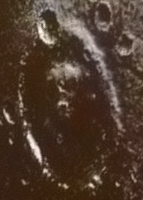Astrobiology is a science that examines the beginnings, development, spread, and potential futures of life across the cosmos. This interdisciplinary field merges principles from biology, chemistry, physics, and geology to probe the possibilities of extraterrestrial life and its various potential manifestations. If you're a student fascinated by the mysteries of life beyond Earth, these tips will help you navigate the path to becoming a part of this thrilling field of study.
1. Build a Strong Foundation in STEM
Astrobiology is a multidisciplinary field that requires a solid foundation in several core scientific areas. Focus on strengthening your background in STEM subjects, as it provides the necessary tools to understand the complex interactions between life forms and their environments — whether terrestrial or extraterrestrial. Consider participating in science fairs, joining school science clubs, or taking advanced placement courses to deepen your knowledge and demonstrate your commitment to a scientific education. You can also write essays on this topic and deepen your understanding of this discipline via research. To have enough time for the latter, you can Google “Who can do my coursework?” and find academic help online. This will allow you to boost both your grades and your knowledge.
2. Get Involved in Research Early
Getting hands-on research experience is crucial in astrobiology. Look for opportunities to work in laboratories, particularly those that focus on microbiology, organic chemistry, or genetics. Many universities and research institutions offer summer internships for high school and college students. Participating in these programs allows you to gain valuable laboratory skills. It can help you understand the practical aspects of scientific research, giving you a taste of what daily life in this career field entails. You also need to build up your skillset to properly do research. Here are just a few of them:
- Analytical Skills: Ability to examine information and data critically to draw conclusions and solve problems.
- Technical Proficiency: Familiarity with specialized tools, techniques, and technology relevant to your field of study.
- Critical Thinking: The capability to think clearly and rationally, understanding the logical connection between ideas.
- Communication Skills: Effectiveness in writing and speaking to clearly convey research findings and ideas.
- Attention to Detail: Precision and carefulness in observing phenomena, conducting experiments, and recording data.
- Persistence: Steadfastness in pursuing research objectives despite challenges or setbacks.
- Collaborative Spirit: Willingness and ability to work with other researchers and professionals to share ideas and findings.
3. Follow the Space Missions
Global governments have been steadily investing in space exploration, and the amount of invested funds is predicted to reach 93 billion US dollars by the year 2027. Stay informed about current and future space missions, especially those related to the search for life, such as NASA’s Mars missions and the Europa Clipper mission. Understanding the objectives and outcomes of these missions can provide insights into the potential habitats and life forms that astrobiologists are eager to study. Subscribe to newsletters, attend lectures, and follow agencies like NASA and ESA on social media for the latest updates and discoveries. This knowledge not only fuels your passion but also makes you a more informed candidate when applying for internships and jobs.
4. Pursue Higher Education in Astrobiology
To seriously engage with astrobiology, consider pursuing a degree in the field. Look for colleges and universities that offer specialized programs in astrobiology or related fields.
|
Education Institution |
Program Name |
Brief Description |
|
University of Washington |
UW Astrobiology Program |
Offers a dual-title PhD and an undergraduate minor in astrobiology |
|
Arizona State University |
BS in Earth and Space Exploration |
Offers a variety of courses related to astrobiology and biogeosciences. |
|
Penn State University |
Astrobiology dual-title degree |
Available as part of PhD programs in Geosciences or Meteorology and Atmospheric Science |
|
Florida Institute of Technology |
Bachelor of Science in Astrobiology |
The first and only undergraduate astrobiology program in the U.S., providing a broad education that includes planetary sciences and the theory of abiogenesis. |
|
Princeton University |
Program in Astrobiology |
Offers courses exploring life in extreme environments |
These programs typically offer a combination of coursework and research opportunities that are specifically geared toward the needs of aspiring astrobiologists.
5. Develop Computational and Analytical Skills
In today’s data-driven science landscape, computational skills are indispensable. Astrobiology research often involves analyzing vast amounts of data from experiments and space missions, so skills in data analysis, statistics, and computer programming are highly beneficial. Learning programming languages such as Python or R can be particularly useful. These tools not only aid in research but also enhance your resume and expand the range of projects you can work on.
6. Network with Professionals
Networking is key in any niche scientific community. Attend astrobiology conferences, workshops, and seminars to meet professionals in the field. Joining organizations such as the Astrobiology Society or the International Astrobiology Society can also help you connect with researchers and practitioners. These connections can lead to mentorship opportunities, collaborative projects, and job offers post-graduation. Don’t hesitate to contact professors and professionals for advice and insights into their career paths and experiences.
7. Stay Curious
The field of astrobiology is constantly evolving with new discoveries and technologies, and it keeps attracting people worldwide. David Grinspoon, a prominent astrobiologist and author, once noted, “Astrobiology is a great point of contact for science outreach. The public is naturally interested in extraterrestrial life. Astrobiology provides an accessible point of access that leads to deeper questions”. This is why it's important to stay curious and adaptable when learning astrobiology. Keeping an open mind not only helps in scientific inquiry but also prepares you for the unexpected twists and turns of a career in exploring the unknown.
Launching Your Interstellar Career
Pursuing a career in astrobiology and alien studies can seem as daunting as it is exciting, but with the right preparation and mindset, it’s definitely within reach. By building a strong scientific foundation, gaining research experience, and staying engaged with ongoing space missions, you’re laying the groundwork for a successful career in this fascinating field. Remember, every giant leap for mankind started with small, determined steps. Ready to take yours?
Author: Sam Stahl
Sam Stahl is an accomplished astrobiologist and article writer who is passionate about uncovering the mysteries of the cosmos. Through his writing, Sam brings complex astrobiological concepts to a broader audience, blending detailed scientific insights with engaging storytelling. His work aims to ignite curiosity about life beyond Earth and the potential for future space exploration.
More Alien Movie Universe News & Articles
Now that Alien: Romulus is out, discuss the film with other Alien fans in the Alien: Romulus forums here.
Visit the Alien: Earth TV Series forums to browse topics about the upcoming TV series by Noah Hawley as well! Got news for the Alien: Earth TV series? You can share that, here!


























